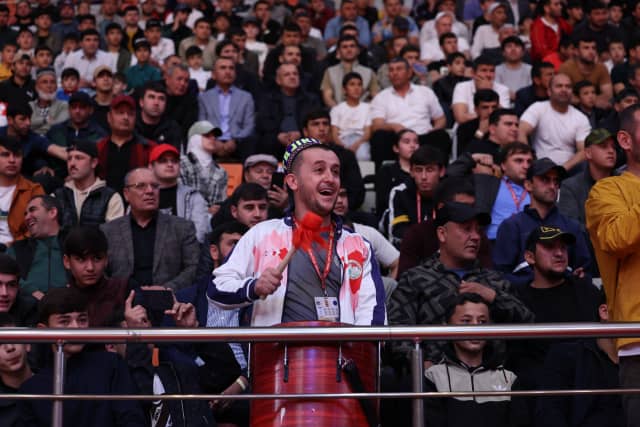“First I want to say that our referees for the Olympic Games are here, 15 of the selected 16. So, really we have the best team and they are understanding the rules in exactly the sameway, unified and this brings consistency and quality across all 3 tatami. Together with the commission, we hope it makes the job of understanding the rules, for athletes and coaches, more clear.
There have been a lot of low techniques such as seoi-otoshi and sutemi-waza attacks; sometimes they’re effective but sometimes competitors look like they don’t want to make real contact and some of these attacks are not such high quality, especially in the early rounds. We give penalties for false attacks, necessary to set the tone and encourage more positivity in strategy. Conversely, I can say that I have seen throws with very good amplitude, throws like ura-nage, amazing moments for spectators but also for referees. These techniques usually end with ippon and this is entertaining and satisfying. Kocher (SUI), Naguchev (AIN), Starke GER), Nyamsuren (MGL) and Pantano (ITA) all fought this way and their effort to fight with intention, an emphasis on hunting the ippon.
Thinking about searching for ippon, more than half the -52 kg first round contests finished in ne-waza. There was a mix of osae, kansetsu, shime-waza finishes showing that the athletes are choosing to explore all sides of judo to chase the positive scores. There has almost been a revolution in ne-waza in recent years, a very positive change. In tachi-waza defence strategies are very advanced for all athletes at this level but there is not enough practice defending in ne-waza and this means there is an advantage for tori on the ground.
The next point is again about education. Referees are sometimes forced to give a shido to each athlete for not gripping, too often for many seconds at the beginning of each exchange. They must understand that they can be in trouble and we came close to giving 3 shido each in a couple of contests. Judoka on the Tour are clever and if there is a difference in penalties, one knows to wait for both to get the non-gripping shido and this is tactical. It’s not good for judo on the whole but it exists and we want less of it. We want the athletes to get rid of this problem by stepping forward to take the grips, be willing to engage and impose themselves.
The last point for today is about the spectators, so loud but so good for judo. This energy makes us all happy. They are positive, not calling for shido. They enjoy all the throws, appreciating activity and not passivity.





